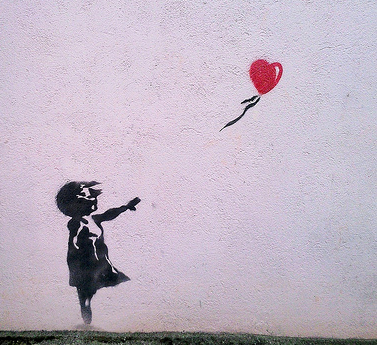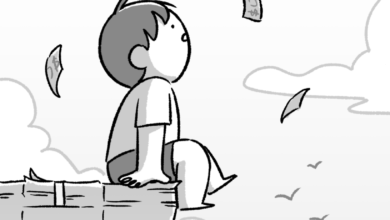Lovingly Let Go Of Friendships 🌿💛

Friendships are one of life’s greatest gifts. They provide support, laughter, and shared experiences that enrich our lives. However, just like romantic relationships, not all friendships are meant to last forever. 🌻 As we grow and change, some friendships may no longer serve us, or they may become more draining than fulfilling.
Letting go of a friendship can be painful, but when done with love and compassion, it can lead to personal growth and emotional healing. 🌱 Here’s how to lovingly let go of a friendship when the time comes:
1. Reflect on the Friendship’s Evolution 🔍
Before deciding to let go, take a moment to reflect on how the friendship has evolved. Ask yourself some important questions:
- Is this friendship still mutually supportive? 💞
- Do I feel uplifted after spending time with this person, or do I feel drained? 💔
- Are we growing in the same direction, or have our values, interests, and goals significantly diverged? 🌿
Friendships naturally go through ebbs and flows, but if you find that the friendship consistently brings you stress, discomfort, or resentment, it might be time to move on. By reflecting on the situation with compassion for both yourself and your friend, you’ll have a clearer sense of whether the friendship is still serving you. 🌸
2. Acknowledge Your Emotions 💬
Letting go of a friend can stir up many emotions—guilt, sadness, and even fear of being alone. 😔 It’s important to acknowledge and honor these feelings without letting them control your decision.
Recognize that it’s okay to feel conflicted about ending a friendship, but also understand that it’s possible to make room for new connections when we let go of ones that no longer align with our values or well-being. 🌈 Your emotions are valid, but they don’t have to dictate your next steps.
3. Communicate with Compassion 🗣️
If you choose to talk to your friend about the shift in the relationship, approach the conversation with kindness and honesty. Avoid blaming or accusing them, and instead, focus on how you feel and why the friendship no longer fits where you are in life. 🌼
Related Post
You might say something like:
- “I’ve been reflecting on how we’ve both grown over the years, and I feel like we’ve been heading in different directions.”
- “This friendship means a lot to me, but I think we’re both at a place where we need different things from each other.” 💛
By focusing on your feelings and not attacking the other person, you make space for a more peaceful and understanding conversation.
4. Give Yourself Permission to Move On 🧘♀️
One of the hardest parts of letting go of a friendship is allowing yourself the permission to do so without guilt. 😔 We often feel pressure to hold onto relationships out of obligation or loyalty, but the truth is, it’s okay to move on. As we grow, our needs change, and it’s natural that not all friendships will evolve with us.
It’s also important to remind yourself that letting go doesn’t mean you don’t appreciate the good times you’ve shared. 🌸 It simply means you recognize that the friendship has run its course, and both you and your friend deserve relationships that feel nourishing and joyful. 🌿
5. Set Boundaries, If Needed 🚧
Sometimes, friendships don’t end in one clear moment but rather fade over time. In these situations, it can be helpful to set gentle boundaries. ✨ If you’re still in contact with this friend but want to create some distance, be mindful of how often you engage and what kind of energy you’re willing to give.
Boundaries could look like saying “no” to certain hangouts, reducing the frequency of texting, or avoiding certain topics that have been sources of conflict. 🛑 Setting boundaries is not about cutting someone off abruptly but about protecting your emotional well-being and fostering relationships that are mutually fulfilling. 💖
6. Grieve the Friendship 🌧️
Just like any significant relationship, ending a friendship comes with a period of grieving. 😢 Allow yourself to feel the loss, whether it’s through journaling, talking to another trusted friend, or simply giving yourself time to process. It’s okay to feel sadness, even when you know it was the right decision to let go.
Remember that letting go with love means acknowledging the impact that person had on your life, and appreciating the lessons and memories you shared—even if the friendship wasn’t meant to last forever. 🌼
7. Focus on Your Growth 🌸
Letting go of a friendship can create space for your own personal growth. 🌱 This is a time to reconnect with yourself, invest in your well-being, and foster new connections that align with your current values. Consider how this transition can be a step toward building relationships that bring you joy and inspire your personal evolution.
Focus on hobbies, self-care practices, and activities that lift you up. 🌟 Surround yourself with people who support and encourage you, and remember that your emotional energy is precious. Spend it on relationships that make you feel valued, understood, and loved. 💖
In Conclusion 🌈
Letting go of a friendship is never easy, but it can be done with grace, love, and compassion. By honoring your feelings, communicating openly, and focusing on your personal growth, you can lovingly release relationships that no longer serve you. 🌿Remember, it’s not about forgetting the past, but rather acknowledging that both you and your friend deserve to move forward on your own paths. 🌸 The end of a friendship doesn’t negate the beautiful moments you shared; instead, it opens up new possibilities for joy and connection in the future. 🌷
Have you ever had to let go of a friendship? How did you navigate it? Share your thoughts below! 💬🌼




